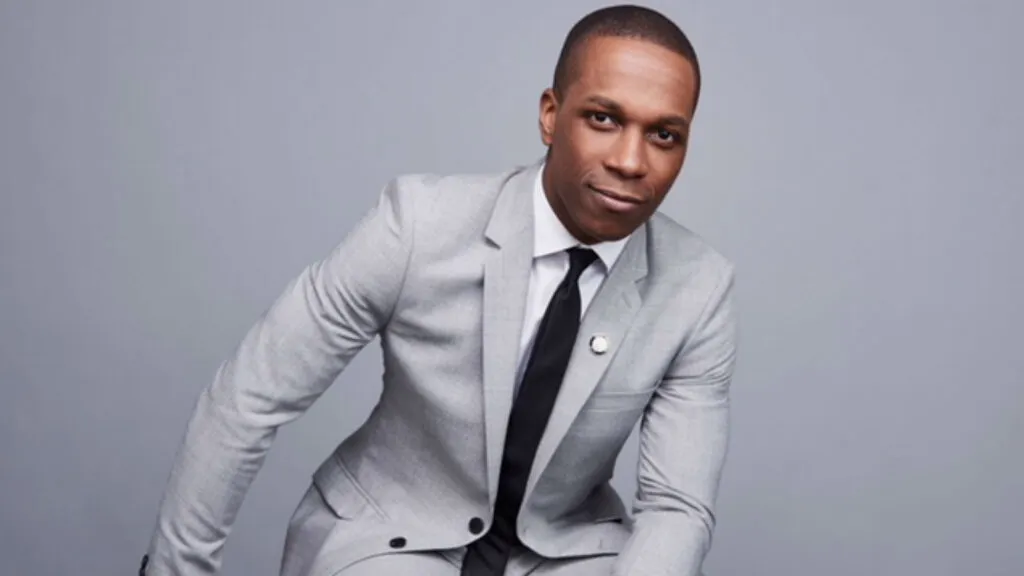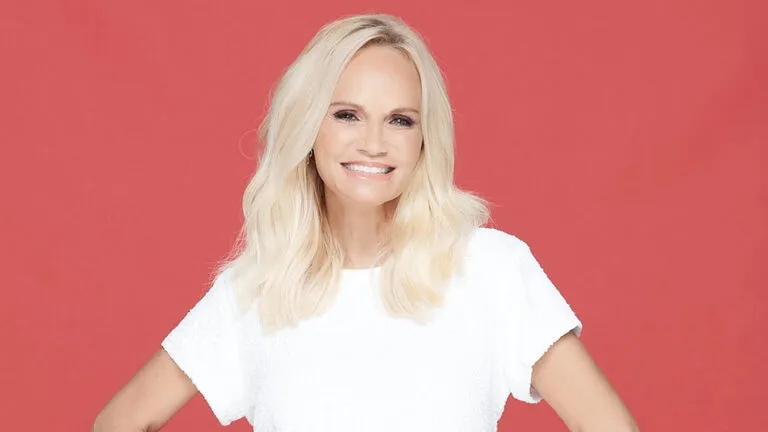Leslie Odom Jr. has both a GRAMMY and a Tony award sitting on his shelf. The singer is fresh off of a role in the international box office success Murder on the Orient Express. Oh, and he played Aaron Burr in a tiny Broadway show you might have heard of called Hamilton.
The 2016 Tony award-winning musical – which used hip-hop to recount America’s earliest beginnings through the eyes of one of its founding fathers, Alexander Hamilton — became one of the best-performing Broadway shows in history. It was heralded as a cultural achievement. It spurred an interest in America’s legacy. It had young kids rapping about historical figures like George Washington, John Laurens, and the Marquis de Lafayette.
And Odom almost wasn’t a part of it. Battling depression after a decade of acting with no big success to his name, Odom almost quit the profession before he got his biggest roles.
Thankfully, he stayed the course and, these days, Odom’s plate is more than full. Guideposts.org caught up with Odom just a few days before the release of his new book, Failing Up: How to Take Risks, Aim Higher, and Never Stop Learning. The new father of a 1-year-old girl with his wife Nicolette Robinson, is in the middle of reshoots for his upcoming movie with Kate Hudson and preparing for his first book tour. In fact, it’s all this success that ultimately pushed him to pen a book about failure.
“I started from nothing,” Odom tells Guidepost.org. “It was a really tough road to get to this very fortunate position that I find myself in now. I think there’s something that’s important in holding your private struggles and your battles, holding that up against the triumphs; it makes the triumphs sweeter.”
He’s hoping that sharing his struggles will inspire those who aren’t yet where they want to be.
For Odom, his inspiration to ultimately become an actor began with his social studies teacher back when he was an unruly ten-year-old growing up in Philadelphia. Miss Turner, he recounts in his book, urged him to become an orator, competing in school and regional competitions and eventually inspiring his passion for the stage.
“I was a kid with some behavioral issues and discipline issues. It could’ve gone [another] way for me, really,” Odom says. “I met a woman who turned things around for me at that time. Miss Turner is unique to me, in Philadelphia. I know that not everybody has as supportive a network as I had, but in the book, I do challenge the reader to point out three people. I know that there are three people on this planet that care about you, that love you, that want you to win. It’s really about identifying those three people and allowing them to help you.”
When Odom was considering quitting acting for good, another mentor, Stuart Robinson, stepped in. After graduating from Carnegie Mellon University and moving out to L.A. to pursue acting, Odom fell into a depression after failing to get the roles he was hoping for.
“I was about to turn 30 and I really was going to quit,” Odom says. “This was six years ago, so this is before Hamilton, before Smash, Person of Interest, Law and Order SVU, some of the biggest things that I have done, I would’ve never made it to, but I was really tired of the up and downs,” he says.
“I dealt with depression on and off, certainly in my twenties when I was starting out. Part of that was because of the aimlessness and the insecurity and the instability, but I was just sick of it.”
He sat down with Robinson to see what else he could do and was given some much-needed tough love.
“He heard me out,” Odom recalls. “He heard me in the state that I was in and he said, ‘We can talk about that. We can talk about other things you might do, and things you might do with your life, but I’d love to see you try before you quit.’”
Odom felt taken aback.
“At this point, I had been a professional actor for a decade, so I was confused. I thought you’d be hard-pressed to find somebody who tries harder than me,” Odom says. “When the phone is ringing, when I get an opportunity, I knock the ball out of the park. The phone’s not ringing. [Robinson] said, ‘Exactly. So what did you do today, for yourself, in the absence of the ringing phone? Did you call anyone? Did you email anyone? Did you read anything? Did you practice? Did you study?’ He just opened my mind up to all the possible ways that I could fill a day for myself.”
It was that proactive way of thinking about pursuing his passion, reaching for his goals, that changed the course of Odom’s career.
“My life changed,” he says. “I was sitting on the couch. I was waiting for things to come to me and sitting on that couch, I was ignoring at least half of my responsibility as a businessman, as a freelance artist, as a person who was on a path. I had to get off that couch.”
Once he began actively campaigning for himself and his abilities, he found himself with a new problem. He was in New York working with Hamilton creator Lin-Manuel Miranda on the musical that would eventually change his life. He was involved in the production from the beginning, reading for the part of Burr who also serves as a pseudo-narrator of the show, but he hadn’t been promised anything. There was no official offer, no steady paycheck, just a dream shared by Odom and the rest of the cast.
Around that time, a new TV series he auditioned for wanted to bring him out to L.A. to begin filming. It would add plenty of money to his bank account and maybe, if it did well, make him a household name – two things most actors can only hope for.
Odom turned it down.
“There was a lot of money that that TV show was offering me, and my family certainly needed it,” Odom says. “There were no guarantees with the Hamilton thing. There was no guarantee that, even if Hamilton was a success, if it made it to Broadway, I didn’t have anything in my contract that would guarantee that they would take me. I turned that TV show down, but in my heart, there was no other option. That was the only option that I was going to be able to sleep at night. That was the only option I was going to be able to live with. It sounded a little crazy to people as I was telling them what I was looking to do, but, it paid off.”
Odom shares that story in his book in the hopes that it might motivate someone else to make a life-changing decision, and pay attention to their intuition, that inner-voice that can guide you to seemingly impossible opportunities.
“The people that I respect the most, the people that I revere and sort of look up to, the careers, especially, that I look up to, there’s a tremendous amount of risk involved in those careers,” Odom says. “I share it, only because that’s going to help somebody. Somebody’s going to be like, ‘You know, that’s a crazy story that I heard and maybe this is my moment to do something crazy.’”
Odom ends his book by sharing another personal moment, reflecting on the way the world has changed since he played Burr at the Richard Rogers Theater in New York just two years ago. He recounts his experience performing at the University of Virginia’s bicentennial celebration in Charlottesville, Virginia, just weeks after a white nationalist rally injured over 20 people and ended with the deaths of one civilian and two police officers. It marked a shift in the country, one that was hard to believe after the success of Hamilton and the progress Odom felt the show was partly responsible for.
“There was something about Hamilton that felt like the world had changed, and we were on a path to a certain kind of inclusion, and a certain kind of hope, and a certain kind of, you know, America. It just felt like, ‘Wow, things have really turned a corner,’” Odom says.
“I think, without being too political, [there’s been] a resurgence of a certain kind of hatred, a certain kind of ugliness in this country. A major, emboldened, undeniable, and unashamed bigotry and prejudice that we’ve seen in this country, has been unleashed from somewhere. I needed to hold both of those things at the same time,” Odom says of ending the book talking about Charlottesville.
“I needed to reckon with this moment in my life that happened right after this other moment,” he continues. “I performed at the White House. Hamilton performed at the White House. A year or two later, [in today’s political climate] it’s almost unimaginable.”
Still, Odom hopes that by balancing out the more inspiring parts of his story – the Broadway success, the accolades, the personal moments of joy – with some of the harder truths about the struggles we all face living in the world today, people will find a relatability and a sense of hope after finishing the book.
“I never want to be too far from the lesson and the struggle of my journey,” Odom says. “I know how fleeting these moments are. The bad moments are fleeting, and the good ones are fleeting too.”
Still, he has hope that people can achieve what they were created to achieve.
“I just believe so strongly that there is no dead end when you are actively following your passion and actively putting one foot in front of the other to make a dream come true,” Odom says. “You will be guided. Whether it’s mentors and teachers and friends, or whether it’s universal laws showing up to push you forward.






